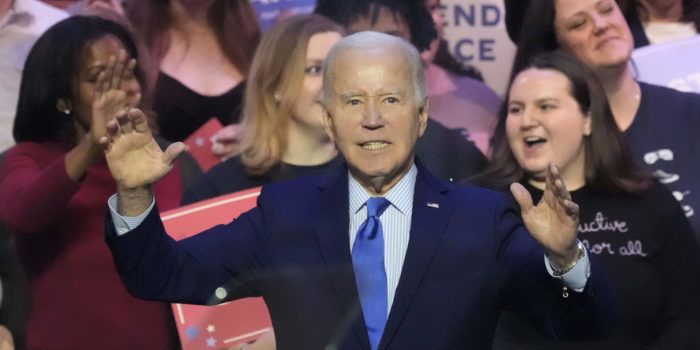(Luis Cornelio, Headline USA) Leaked letters appear to confirm earlier revelations that the White House carried out multiple attempts to interfere in the damning release of Special Counsel Robert Hur’s final report that delved into President Joe Biden’s mishandling of classified documents, multiple outlets reported on Thursday.
A day before the release of the Hur report, White House Counsel Ed Siskel and Biden’s personnel counsel Bob Bauer issued a letter to Attorney General Merrick Garland, accusing Hur of “openly, obviously, and blatantly violating” the DOJ’s policies and practices on special counsel reports.
Similar complaints were expressed in a letter dated Feb. 5 and addressed to Hur. However, the DOJ ignored the complaints and went ahead with the release on Feb. 8.
Specifically, Hur detailed how Biden acquired classified documents but recommended against pressing charges, arguing that Biden would likely have presented himself as a “sympathetic, well-meaning, elderly man with a poor memory,” during a hypothetical trial.
The White House complaints began after Hur allowed the Biden team to review the report for potential executive privilege over the letter’s content. However, according to Politico, this incident wasn’t isolated.
The White House, through Biden’s Special Counsel Richard Sauber, directly approached the special counsel on an Oct. 31 letter, seeking to compel Hur to produce an “economical” report, meaning limited in content, Politico reported.
On Sept. 11, Sauber again claimed that former vice presidents had previously retained personal diaries, similar to those owned by Biden, which were not required to be held in classified material compartments.
Associate Deputy Attorney General Bradley Weinsheimer pushed back on Feb. 8, stating that the contents of the letters were within the DOJ’s standard for release, as reported by the New York Times.
“Having carefully considered your argument, the Department concludes that the report as submitted to the Attorney General, and its release, are consistent with legal requirements and Department policy,” Weinsheimer wrote.
“The report will be provided to Congress and released publicly, consistent with Department practice and the Attorney General’s committee to transparency,” he added.

